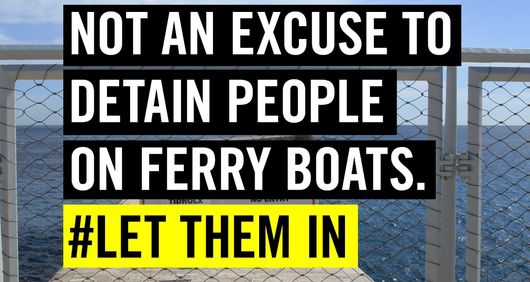Urgent Action outcome: asylum-seekers allowed to disembark

Maltese authorities finally allowed the disembarkation of all asylum-seekers held on four ferry boats off Malta’s territorial waters in the night of 6-7 June. The approximately 425 asylum-seekers had been transferred to the ferry boats after their rescue in the central Mediterranean. The disembarkation puts an end to their arbitrary and indefinite detention on the ferries, which for some of them, lasted over a month.
NO FURTHER ACTION IS REQUESTED. MANY THANKS TO ALL WHO SENT APPEALS.
In the night between 6 and 7June Maltese authorities finally allowed the disembarkation of approximately 425 asylum-seekers who were being held on four ferry boats off Malta’s territorial waters. These asylum-seekers had been transferred to ferry boats chartered by Malta – private vessels used for coastal tourism – after being rescued in the central Mediterranean and were held in arbitrary and indefinite detention in conditions that were inadequate, in some cases for over a month. The disembarkation puts an end to the ordeal of the asylum-seekers on the ferry boats.
Since April 2020, Malta used Covid-19 to justify a decision not to authorize the disembarkation of people rescued in the central Mediterranean. Following several incidents involving failure to attend to boats in distress, Maltese authorities decided to transfer asylum-seekers rescued at sea to ferry boats, with the aim of forcing European Member States to relocate asylum-seekers and share the responsibility for their assistance.
After their rescue in different operations between the end of April and May, approximately 425 asylum-seekers were held on four ferry boats belonging to two private companies, Captain Morgan and Supreme Cruises, off Malta’s territorial waters. Despite the ferry boats being unsuited to cater for the needs of those rescued at sea and unequipped for long stays, Maltese authorities arbitrarily detained asylum-seekers offshore, without indicating the expected length of their detention. Maltese authorities did not provide any justification for the detention either. Deprived of any contacts with the outside world, including UNHRC and any access to lawyers and information, asylum-seekers were de facto denied access to asylum and any effective remedy to challenge their arbitrary detention.